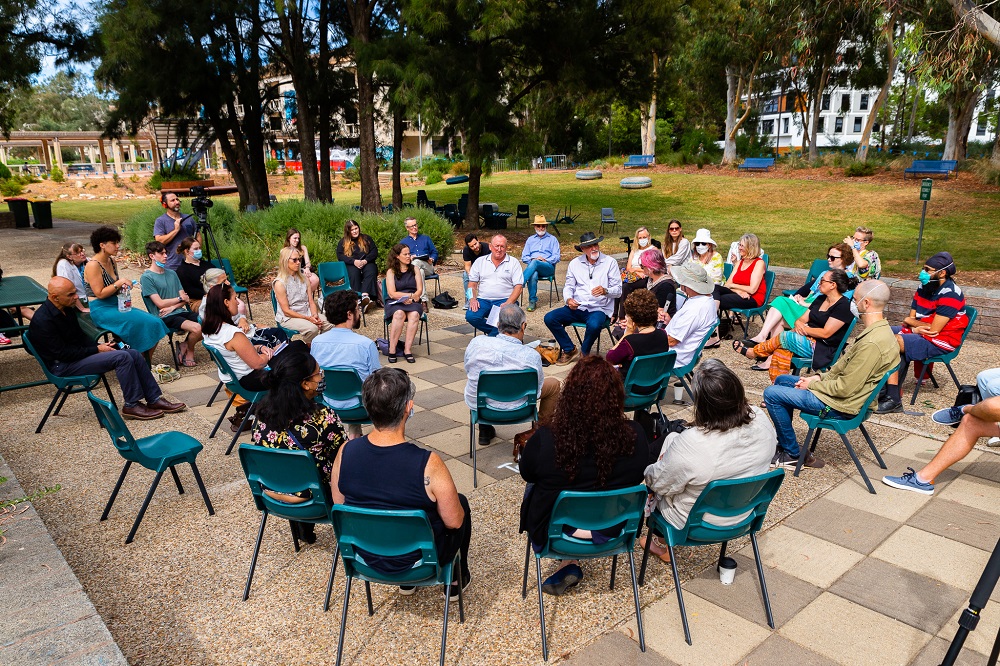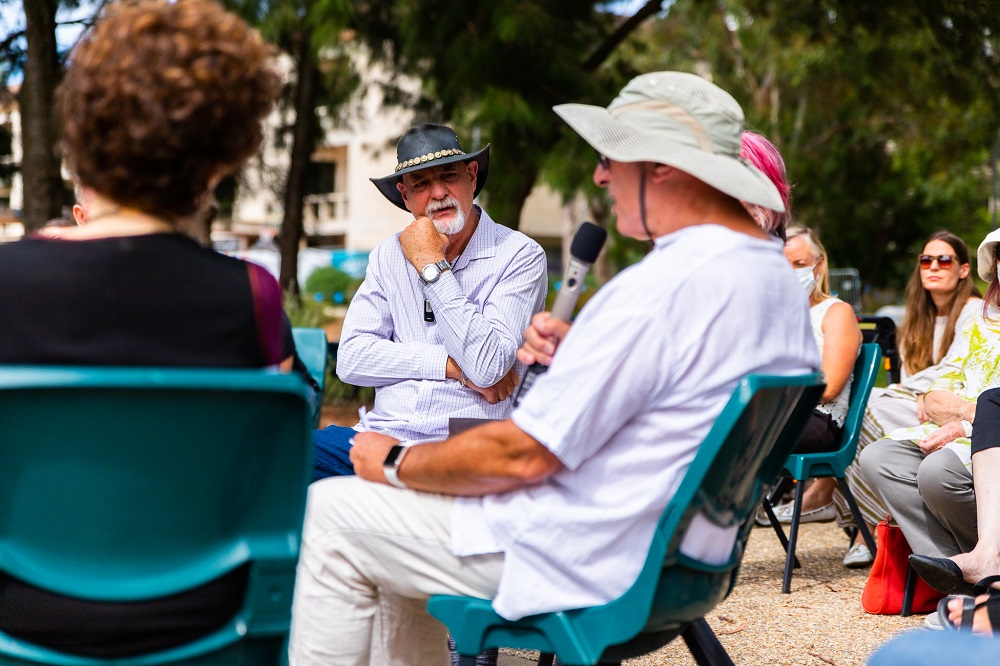Katarina Slavich
23 February 2022: The University of Canberra is implementing yarning circle demonstrations across disciplines, to help students develop their critical thinking, communication skills, cultural competence and a sense of resilience.
Historically, the yarning circle was used by Aboriginal and Torres Strait Islander communities as a communication tool to discuss ongoing issues, problems, and ways to resolve them. They would gather, sit in a circle and share their stories, knowledge, experiences and ideas.
For the first time, the yarning circle concept and process is being taught as part of the University’s curriculum in the Dispute Management unit in the law and justice disciplines, and in the Counselling in Dispute Resolution unit in the allied health and counselling disciplines.

“A yarning circle requires listening to others share their stories, without interruption, in a safe space with no judgement, to work together to resolve a dispute,” said Clinical Assistant Professor in Law, Doris Bozin.
“The aim is for our students to be exposed to a different approach to resolving disputes. It emphasises finding a resolution and guiding students to look at fundamental questions about the law and how to evaluate people’s interests.”
Yarning circles provide various benefits in the teaching context - helping students develop a deep learning through firstly observing, then participating in, the discussion. It helps develop and strengthen attributes such as being able to stand in someone else’s shoes and seeing things from their perspective.
“Yarning circles also demonstrate a different way of resolving disputes through exploring tensions between competing rights and responsibilities, learning what just and equitable outcomes might look like, finding fairness and resolution within the process, and understanding the importance of certainty in a resolution,” said Ms Bozin.
The yarning circle concept is being introduced into the University’s curriculum over the next couple of weeks. Over 350 students are expected to observe University academics and professional colleagues in law and allied health professions taking part in a yarning circle dispute scenario, before participating in their own yarning circle.
For the introductory yarning circle demonstration, participants came together on campus. They played roles to showcase how to resolve a dispute in non-adversarial ways.
The demonstration was facilitated by Senior Lecturer of Aboriginal and Torres Strait Islander Specialisation, Dr Wayne Applebee, who is working to Indigenise the Faculties of Health and Business, Government and Law.

“In this, I am attempting to bring Aboriginal voices and knowledge into the room, not only so that we may have a voice, but so that we might also transform the way knowledge is created and decisions are made,” said Dr Applebee.
“The demonstration was to show the adaptability of yarning circles to find decisions that are more amicable to the participants, by using Aboriginal ways of knowing and doing.”
Dr Applebee has been given agency by the Ngunnawal Elders Council to teach cultural knowledge on Ngunnawal country as a traditional Indigenous Elder and keeper of knowledges.


